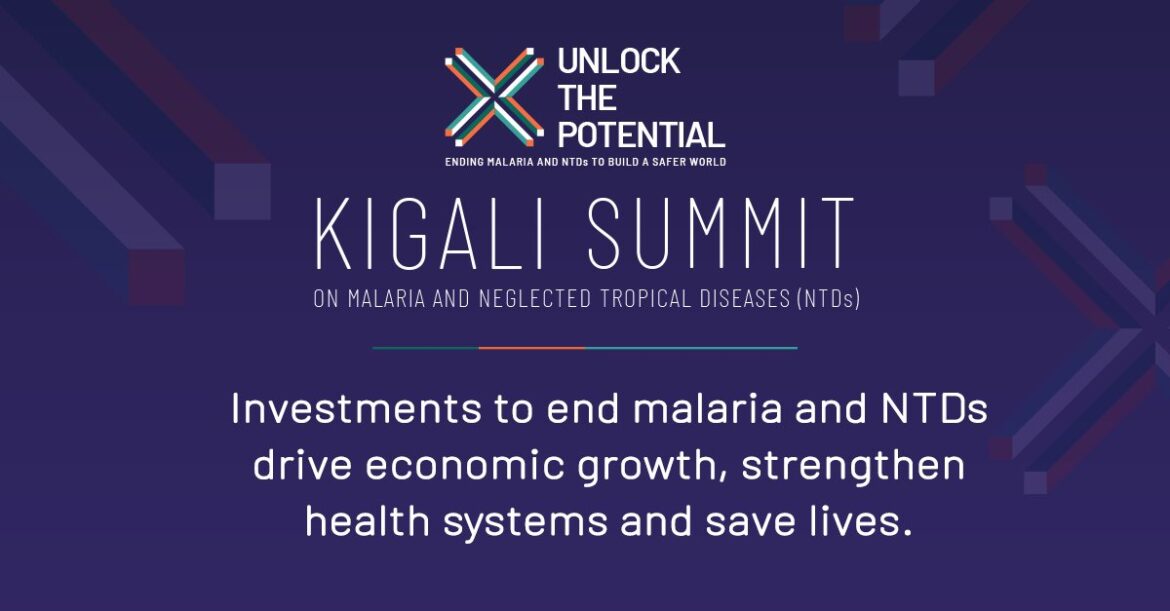By Haruna Gimba
Private sector organisations have responded to a call from the Heads of Government of African countries by stepping up its support, to help the continent fight against malaria and Neglected Tropical Diseases (NTDs).
Hosted by President of the Republic of Rwanda, Paul Kagame, the Kigali Summit featured commitments totalling more than $4 billion, including funding from governments, international organisations, philanthropists, and private sector support.
The private sector organisations made a range of commitments encompassing increased research funding, enhancing local manufacturing capacity including from BioNTech to produce new generation vaccines locally leveraging mRNA technology.
Others are; support for regional initiatives (such as GoodbyeMalaria), new safe, accessible diagnostics for NTDs such as snakebite envenoming and more than 18 billion tablets were donated to NTDs by nine pharmaceutical companies.
Pfizer made a ground-breaking commitment to extend its antibiotic donation program through 2030, enabling continued trachoma elimination programs in more than 19 countries globally.
GSK reaffirmed its commitment to donate albendazole until elimination of lymphatic filariasis, extend its Soil Transmitted Helminths (STH) donation to include pre-school children and include a third disease on the WHO’s 2030 NTDs Roadmap, echinococcosis.
GSK also committed to invest £1billion in R&D over the next decade to get ahead of high burden infectious diseases that disproportionately impact LMICs to ensure that no one is left behind.
Novartis is investing $250 million to advance R&D into new treatments to combat NTDs and malaria, including USD 100 million to advance R&D of its NTD programme, focusing on novel drug candidates for four diseases, and USD 150 million for next generation antimalarials.
The Wellcome Trust committed to delivering £80 million worth of funding towards research on snakebite envenoming treatment.
Biopharmaceutical company BioNTech announced plans to deliver a highly effective vaccine based on its proprietary mRNA technology for the prevention of malaria and disease-associated mortality, with the clinical trial for the first malaria vaccine candidates to start by the end of 2022.
Further support for malaria and NTDs programmes was also delivered by philanthropic foundations and funds, including the Bill and Melinda Gates Foundation.
Melinda French Gates, Co-Chair, Bill & Melinda Gates Foundation, highlighted the remarkable progress Africans and their partners have made against preventable infectious diseases.
“Over the past two decades, it has been inspiring to see the way leaders have come together to combat malaria and neglected tropical diseases,” said French Gates, who spoke at the Kigali Summit.
“African government officials, health workers, advocates, and scientists have contributed to significant reductions in death and other impacts these diseases have on communities.
“Tremendous leadership and collaboration with multilateral organizations, donor countries, and pharmaceutical companies are saving lives and helping people live to their fullest potential.”
Progress against malaria and NTDs has stalled in recent years and even reversed in some countries due to a plateauing of funding, rapidly increasing population and widespread insecticide resistance alongside the recent COVID-19 pandemic.
This has disrupted health programmes including essential services and supply chains that have put further strain on the fight against malaria.
On his part, WHO Director-General, Dr Tedros Adhanom Ghebreyesus, said malaria has afflicted humanity for millennia, “but in the past 20 years we have made huge gains, saving many lives.
“Those gains are now at risk. Without accelerated action, we are in danger of seeing an immediate resurgence of malaria, particularly in Africa. But we have the tools and the strategy to prevent that – and, with new tools, to start to dream of a malaria-free-world.”
Dr Tedros said achieving a healthier and safer world that is free from malaria and NTDs requires new investments, strategic partnerships across different sectors data-driven and tailored use of current tools and increased investment in disease surveillance and early warning systems.
The announcements made at the Kigali Summit are expected to make a significant contribution to saving the lives and livelihoods of billions of people around the world at risk from these preventable and treatable diseases.




